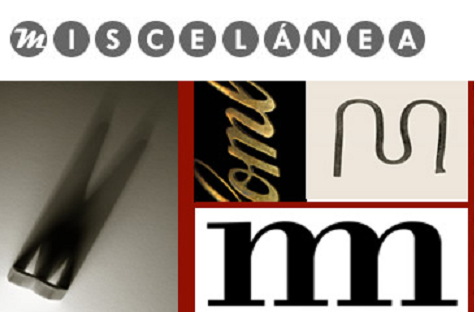“The Subaltern Ethnographer: Blurring the Boundaries through Amitav Ghosh’s Writing”
DOI:
https://doi.org/10.26754/ojs_misc/mj.20079762Palabras clave:
Amitav Ghosh, The Shadow Lines, In An Antique Land, Subalterno, Post-colonialResumen
El presente trabajo interpreta las obras de Amitav Ghosh como una postura alternativa dentro del debate post-colonial. En este sentido, es destacable el papel de etnógrafo que desempeña el novelista de Calcuta, y que nos permite acercarnos al antropólogo subalterno que hace frente a las prácticas discursivas tradicionales enraizadas en la etnografía orientalista. Ghosh alcanza este objetivo mediante dos estrategias paralelas: (1) tomando el discurso etnográfico, que es, en el sentido expresado por Hayden White en The Content of the Form, “un discurso narrativizante”, esto es, que busca una mímesis de la realidad, y convirtiéndolo en un “discurso narrativo”, que simplemente la describe de acuerdo a la percepción del sujeto; y (2) revitalizando el “espíritu antropológico” contenido en la definición de nación como “comunidad política imaginaria” propuesta por Benedict Anderson. Para ello examinaremos The Shadow Lines (1988) y In an Antique Land (1992) como ejemplos del uso de la “descripción densa” en textos de carácter literario y ensayístico. En resumen, la estrategia de Ghosh consiste en “escribir en respuesta a la metrópoli” utilizando recursos alternativos a los que ha venido usando la novela post-colonial actual, tales como la metaficción, la parodia o el carnaval bajtiniano. Ghosh utiliza en su lugar las prácticas de la antropología contemporánea, en otro tiempo aliada de la política imperial.
Descargas
Citas
ANDERSON, Benedict. (1983) 1991. Imagined Communities: Reflections on the Origin and Spread of Nationalism. London and New York: Verso.
BHABHA, Homi K. (ed.) 1990. “DissemiNation: Time, Narrative and the Margins of the Modern Nation”. In Nation and Narration. London and New York: Routledge: 291-322.
BARAT, Urbashi. 2001. “Time in the Novels of Amitav Ghosh and Arundhati Roy: Technique as Meaning”. In Ali, S.M. (ed.) Indian Writing in English: A Critical Response. New Delhi: Creative Books: 124-136.
BOSE, Brinda. 2001. “Footnoting History: The Diasporic Imagination of Amitav Ghosh”. In Paranjape, M. (ed.) In Diaspora: Theories, Histories, Texts. New Delhi: Indialog: 235-245.
CHEW, Shirley. 2002. “Texts and Worlds in In an Antique Land”. In Bose, Brinda. (ed.) Amitav Ghosh: Critical Perspectives. Delhi: Pencraft International: 103-116.
GEERTZ, Clifford. 1988. Works and Lives: The Anthropologist as Author. Oxford: Polity Press.
—. 1973. The Interpretation of Cultures. New York: Basic Books.
GHOSH, Amitav. 1988. The Shadow Lines. London: Bloomsbury.
—. 1992. In an Antique Land. London: Granta Books.
—. 1995. The Calcutta Chromosome. New York: Harper Collins.
—. 2002. The Imam and the Indian: Prose Pieces. Delhi: Ravi Dayal.
KHAIR, Tabish. 2001. Babu Fictions: Alienation In Contemporary Indian English Novels. New Delhi: Oxford U.P.
MATHUR, Suchitra. 2004. “Caught Between the Goddess and the Cyborg: Third-World Women and the Politics of Science in Three Works of Indian Science Fiction”. Journal of Commonwealth Literature 39 (3): 119-138.
MONDAL, A.A. 2003. “Allegories of Identity: ‘Postmodern’ Anxiety and ‘Postcolonial’ Ambivalence in Amitav Ghosh’s In an Antique Land and The Shadow Lines”. Journal of Commonwealth Literature 38 (3): 19-36.
MONGIA, Padmini. 2003. “Medieval Travel in Postcolonial Times: Amitav Ghosh’s in an Antique Land”. In Khair, T. (ed.) Amitav Ghosh: A Critical Companion. Delhi: Permanent Black: 73-89.
SAID, Edward W. 1994. Culture and Imperialism. London: Vintage.
SILVA, Neluka and Alex TICKELL. 1997. “Amitav Ghosh in Interview”. Kunapipi 19 (3): 171-177.
WHITE, Hayden. 1987. The Content of the Form: Narrative Discourse and Historical Representation. Baltimore and London: The Johns Hopkins U.P.
Descargas
Publicado
Cómo citar
Número
Sección
Licencia
Derechos de autor 2007 María Elena Martos Hueso

Esta obra está bajo una licencia internacional Creative Commons Atribución-NoComercial 4.0.


